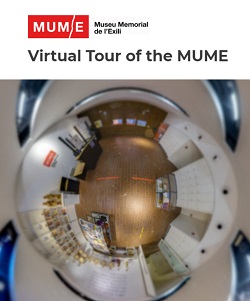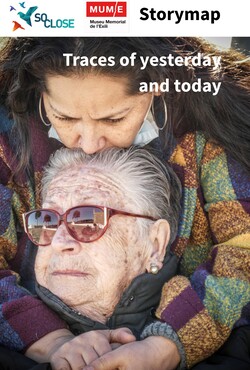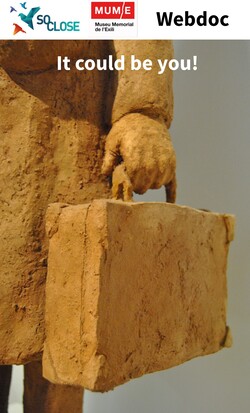ADREÇADA A ESTUDIANTS D’ESO I BATXILLERAT I GRUPS D’ADULTS
Dades tècniques:
Durada: 1 dia (5-6 hores) / Preu per adult / alumne: 12 €
Grups de menys de 20 adults / alumnes: 240 € / grup
Grups escolars de les Comarques de Girona consultar al MUME reduccions de preus del programa INDIKA de la Diputació de Girona.
Informació i reserves per a visites guiades i rutes:
Tel. 972 556 533 / This email address is being protected from spambots. You need JavaScript enabled to view it.
Descripció :
El gener de 1941, el govern de la França de Vichy va obrir oficialment les instal·lacions del camp de Ribesaltes. En pocs dies començaren a arribar els primers interns procedents d’altres centres com Agde, Gurs o els camps de les platges del Rosselló. Ben aviat, el funcionament del camp s’insereix en la l ògica d’exclusió de l’Europa ocupada pel nazisme. Refugiats republicans -que havien estat dels primers en arribar-hi i que havien tingut cura dels preparatius d’obertura del camp- , jueus, estrangers i gitanos són reclosos al camp. La ruda climatologia, la separació de les famílies, la manca d’higiene, les malalties són, juntament amb la manca de llibertat, algunes de les moltes dificultats amb què han de conviure els interns. Les obres humanitàries d’algunes organitzacions suplien l’abandó de l’Estat francès. Un dels episodis més tràgics del camp de Ribesaltes foren els enviaments d’homes, dones i infants jueus cap a Auschwitz entre l’agost i l’octubre de 1942.
La visita al camp de Ribesaltes aporta una visió pedagògica i completa sobre la història europea recent. Des de les conseqüències de la Guerra civil espanyola fins al procés descolonitzador de la Guerra d’Algèria, passant pels anys difícils de la Segona Guerra Mundial i de la deportació als camps nazis. Alhora, és una oportunitat única per conèixer de primera mà l’estructura arquitectònica d’un camp d’internament.
L’activitat s’inicia amb una visita al MUME i tot seguit s’emprèn el camí cap a les instal·lacions del camp de Ribesaltes on s’ofereix una visita guiada.
Més informació:




